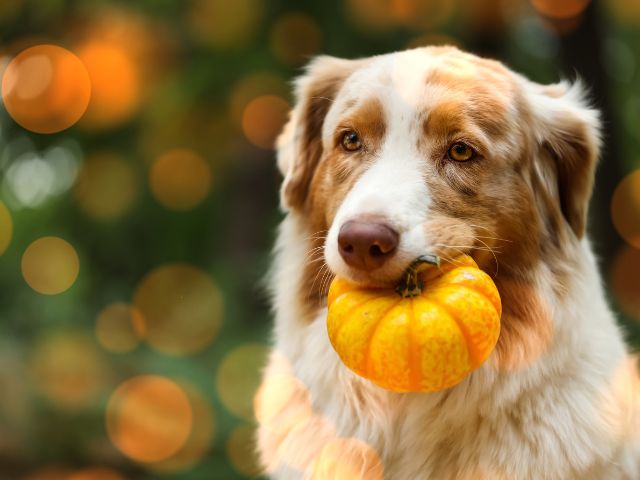
As the holiday season approaches, families gather to celebrate and give thanks, often accompanied by an abundance of delicious food. While we indulge in our favorite Thanksgiving dishes, it's crucial to remember that our furry companions may not share the same dietary tolerance. Many traditional Thanksgiving foods can be harmful or even toxic to pets. In this article, we'll explore the foods that are safe and those that should be strictly avoided to ensure a joyful and hazard-free holiday for our beloved pets.
When it comes to sharing the Thanksgiving feast with your pets, there are a few foods that can be safely included in their meal. Plain, cooked turkey meat is a suitable option, but make sure it's free from bones, skin, and excessive seasonings. Removing visible fat is advisable to prevent any potential digestive issues. Sweet potatoes, either cooked or baked, offer a great source of vitamins and fiber for pets. However, it's important to avoid any sugary toppings, marshmallows, or seasonings. Similarly, plain boiled or baked potatoes can be included in your pets' meal, as long as they are devoid of butter, gravy, and seasonings. Carrots, whether cooked or raw, are a crunchy and nutritious treat, rich in vitamins and minerals, and a healthy option for pets. Green beans, when fresh or cooked, can also be given as a treat, providing a good source of fiber. In small quantities, fresh unsweetened cranberries can be considered for their antioxidants and tangy flavor.
While there are foods that can be shared, there's an equally important list of foods that should be kept far away from pets. Bones, especially from turkey or chicken, should be avoided due to the risk of splintering and causing choking hazards or internal injuries. Onions and garlic, commonly found in stuffing or gravies, can lead to gastrointestinal distress and damage to pets' red blood cells, resulting in anemia. Grapes and raisins are highly toxic and can cause kidney failure, even in small amounts. Nuts, including macadamia nuts, can be harmful, leading to weakness, vomiting, and even paralysis. Rich and fatty foods like turkey skin, gravy, and buttery dishes can result in pancreatitis, causing symptoms such as vomiting, diarrhea, and severe abdominal pain. Desserts and sweets should be strictly off-limits, as chocolate, artificial sweeteners (like xylitol), and high-sugar foods can cause serious health issues.
To ensure a safe and enjoyable Thanksgiving for your pets, consider these practical steps. Designate a quiet and comfortable space for your pets away from the festivities, providing them with water, toys, and cozy bedding. Make sure to inform your guests about your pets' dietary restrictions to prevent accidental feeding of unsafe foods. Prepare pet-friendly treats ahead of time to include your furry friends in the celebration. Secure trash cans to prevent pets from scavenging through discarded harmful food items. If your pet joins the gathering, supervise them closely to avoid any unauthorized snacking.
Thanksgiving is a time of gratitude, warmth, and companionship, which extends to our cherished pets. By understanding the Thanksgiving foods that are safe and unsafe for our furry friends, we can ensure their well-being and happiness throughout the holiday season. Including our pets in the celebrations while prioritizing their safety will undoubtedly enhance the significance of Thanksgiving for the entire family.
